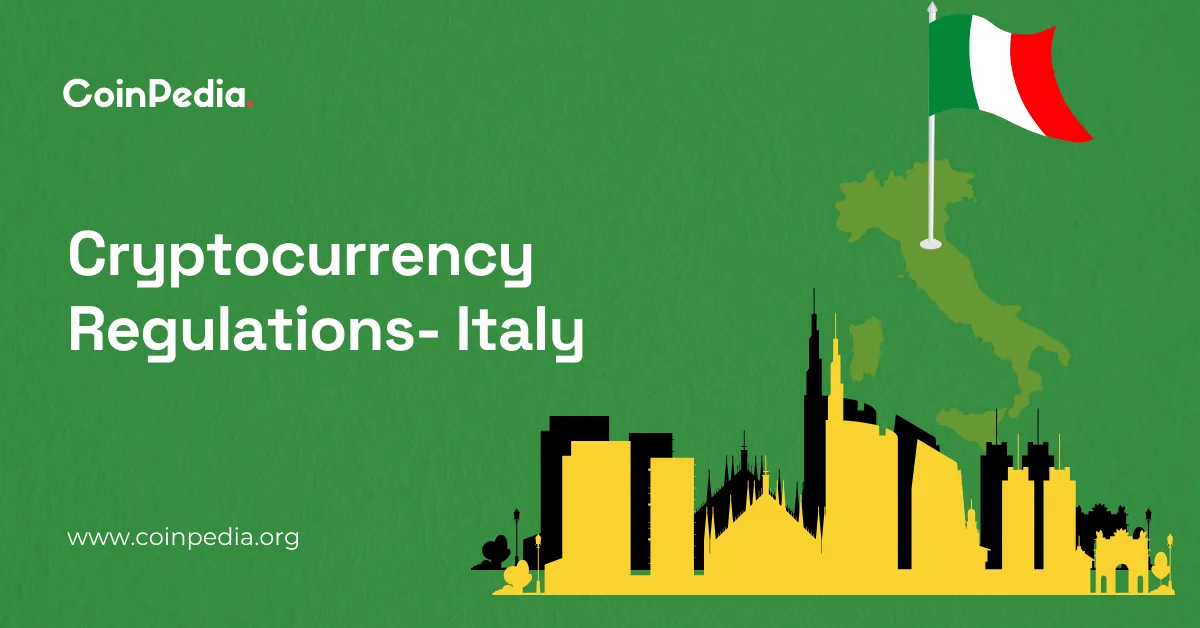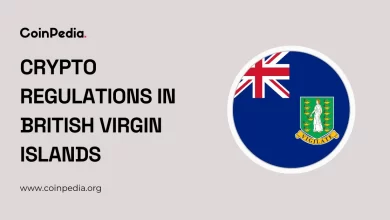
Italy is known for its rich heritage and history! It has embraced the digital era so well. Cryptocurrency is legal and well regulated in Italy. In this guide by Coinpedia, we will study about the legalities linked with cryptocurrencies in Italy in 2024.
Introduction
Crypto is legal and well-regulated in Italy! It has yet not adopted any regulations which are crypto-specific. The Italian government has been active in developing regulations and policies on digital assets through different regulatory authorities. No laws in Italy restrict anyone from buying, selling or holding cryptocurrencies. The Italian Ministry of Economy and Finance (MEF) has a core duty in regulating crypto and taxing it.
Is Crypto Regulated in Italy?
Italy has been very active since January 2023 to regulate the crypto space. It is now mandatory for crypto companies to register with the Organismo Agenti e Mediatori (OAM). The OAM is responsible for:
- Fostering transparency through dedicated registry
- Ensuring compliance with Anti-money Laundering measures
Investors in Italy are expected to use only crypto firms that are registered here. Italy’s central bank governor has recently stated that the country is getting ready for the EU’s Markets in Crypto-Assets (MiCA) act for the service providers.
The Italian financial markets and banking regulators had to work in accordance with Italians’ irresistible draw to everything crypto, with some statistics placing the percentage of Italian families that have invested in crypto assets at a remarkable 35%. Eventually, unlike other EU countries, Italy chose not to adopt any domestic crypto asset regulation, limiting itself to requiring firms operating crypto exchanges, crypto wallets or offering other services in connection with crypto assets to register with an ad hoc section of the Register of Financial Agents and Credit Mediators (“OAM Register”) for AML purposes.
Taxation Policy
Crypto transactions in Italy are taxable! However, not everything crypto is subject to taxes. Certain transactions remain tax-free, like purchasing crypto with Euros, holding crypto and transferring crypto between personal wallets.
The crypto activities in Italy fall under either Capital Gains tax or income tax! The budget 2023 announced a 26% tax rate on crypto gains exceeding 2,000 euros. In case of income tax, it holds municipal, regional and national parts. The national tax ranges from 14% to 43%, depending on one’s annual income.

The tax system here is decentralized, that means regional and municipal income tax rates vary across the country based on local considerations. Regional taxes come between 1% to 3% and municipal taxes are often less than 1%, depending on the region of the residence.
The recent update in tax guidelines mark that losses exceeding 2,000 euros from crypto investments can be reduced from profits. These losses can be considered for up to five years. Crypto loss harvesting can be undertaken here to reduce tax liabilities from year to year.
If mining were treated as a business, profits from cryptocurrency sales could face Italian corporate income tax rates ranging from 23% to 43%.
Conclusion
Italy is seen anticipating the implementation of MiCA in 2024! The scrutiny in the crypto atmosphere could increase in Italy. Italy’s collaboration with the Bank of Korea is set to advance in 2024, with a focus on interoperability in distributed ledger technology (DLT) transactions for the EU’s Central bank’s retail CBDC trials. It shows Italy’s unique approach to the entire CBDC development scenario! Italy has been very adaptive of the minor updates in the crypto sector since 2022, making it a safe nation to work around cryptocurrencies.







